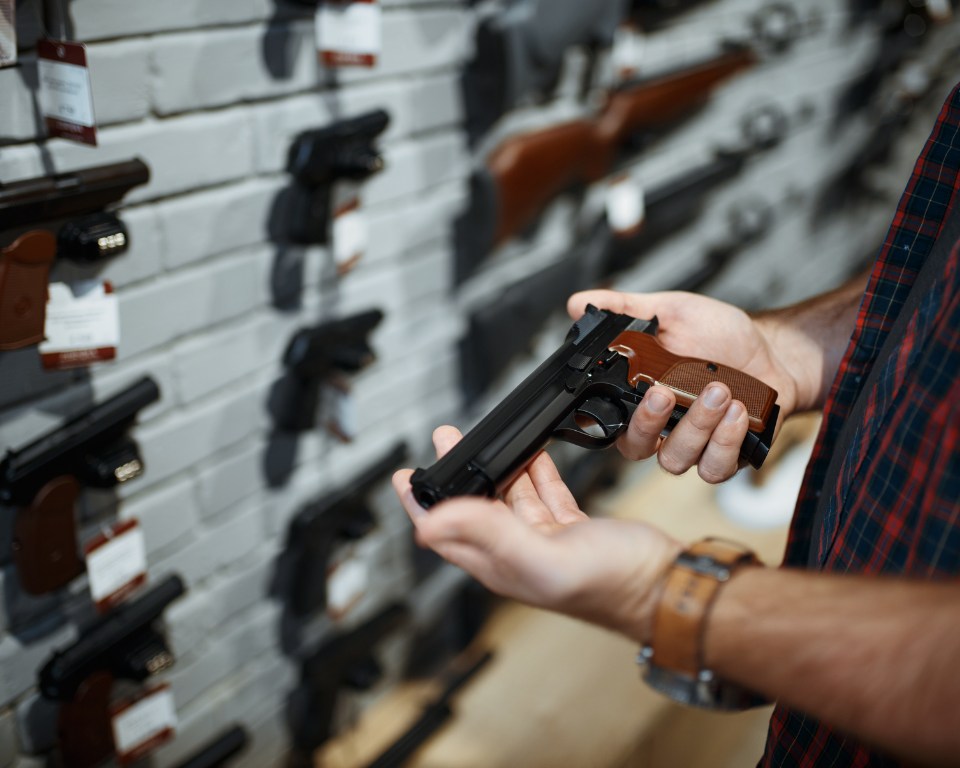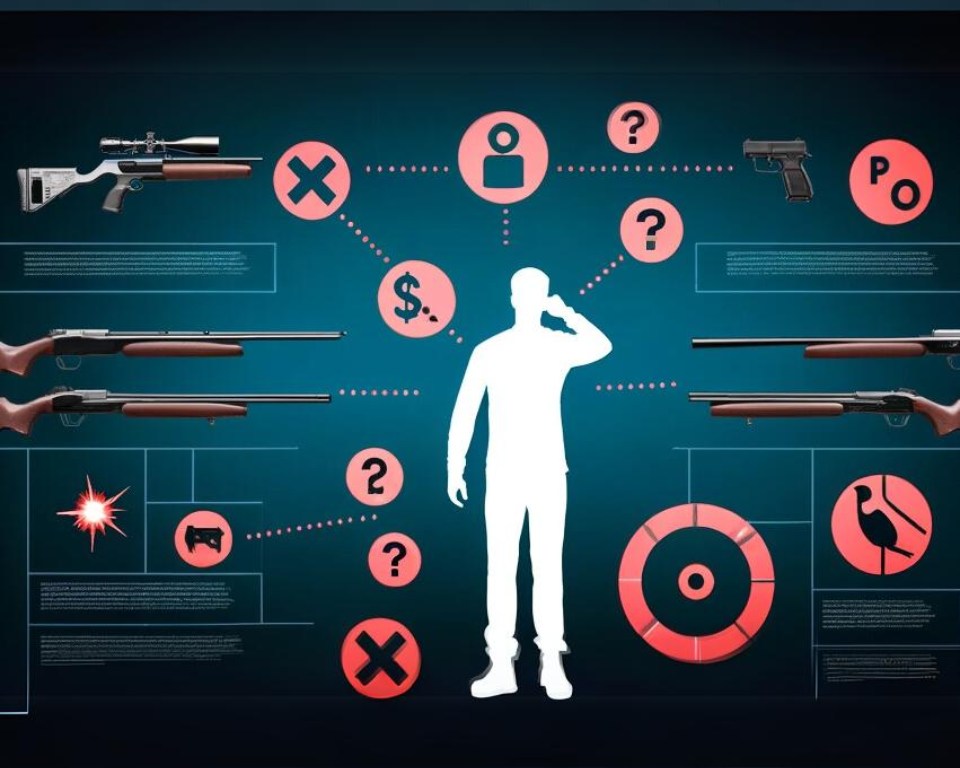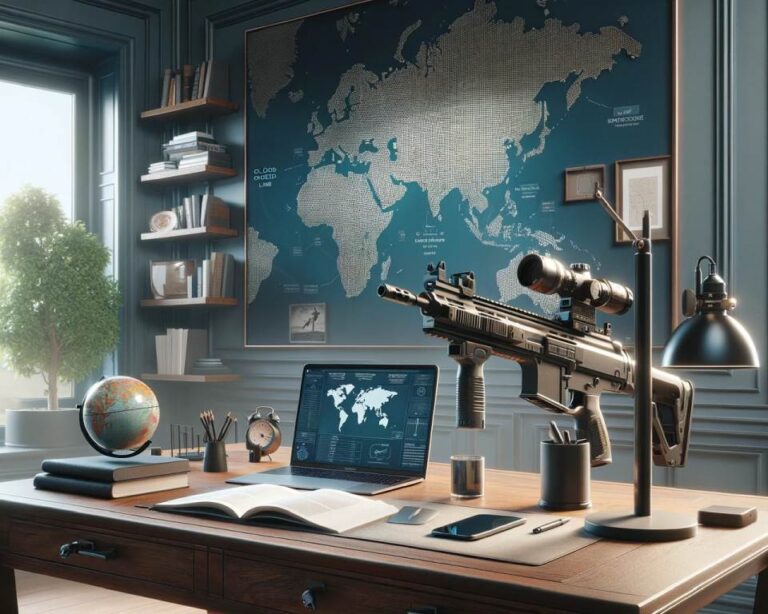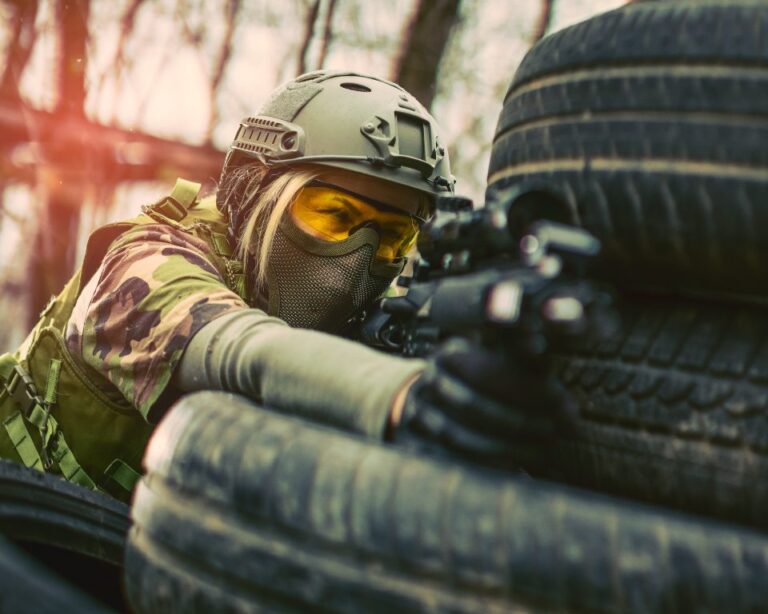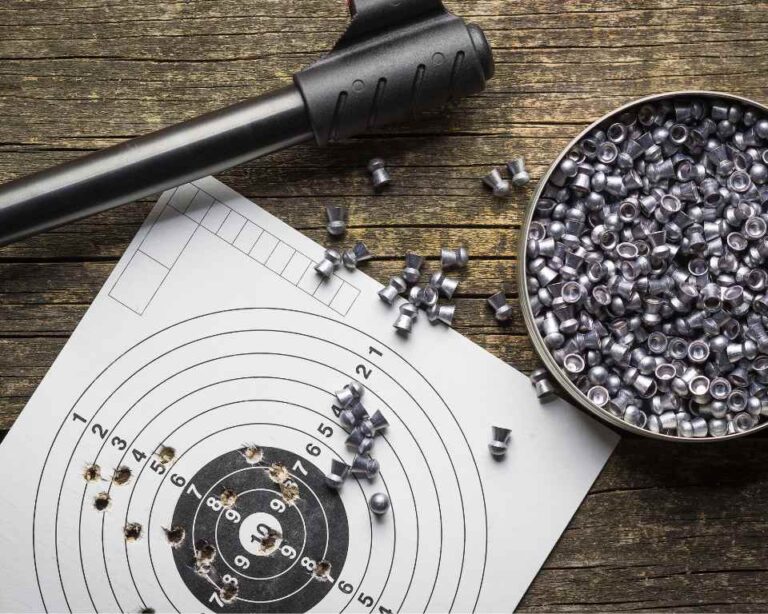Self-Defense and Airguns: Evaluating Their Effectiveness
When it comes to personal protection, there are various options to consider, including airguns. Airguns, such as air rifles and air pistols, can be a viable choice for self-defense when selected carefully with the specific situation in mind. While they may have certain compromises compared to traditional firearms, airguns can still be effective in certain scenarios.
The power of airguns can vary based on factors such as caliber, psi, rifle/pistol, pellet type, and accuracy. There are airguns available in larger calibers, such as .50 caliber PCP rifles, that have the potential to take down larger game. It is important to choose the right airgun for your specific needs and geographical area, considering factors such as the size of potential threats and the distance of engagement.
Key Takeaways:
- Airguns can be a viable option for self-defense when chosen specifically for the situation.
- Factors such as caliber, psi, pellet type, and accuracy play a role in the power and effectiveness of airguns.
- Choosing the right airgun for your needs and geographical area is crucial.
- Airguns are available in larger calibers that can handle larger game.
- Consider the size of potential threats and the distance of engagement when selecting an airgun for self-defense.
Factors to Consider When Choosing an Airgun for Self-Defense
When it comes to selecting an airgun for self-defense, there are several key factors that should be taken into consideration. In order to effectively protect oneself in a threatening situation, it is important to choose an airgun with the right combination of power, projectile type, accuracy, and shooting techniques.
Power and Caliber
One of the most important factors to consider when choosing an airgun for self-defense is the power it possesses. To effectively stop a threat, it is crucial to select an airgun with enough power to incapacitate or deter an attacker. Caliber plays a significant role in determining the stopping power of an airgun. Larger calibers, such as .25, .30, .357, and .50, generally provide more stopping power and are therefore more suitable for self-defense purposes.
Projectile Type
The type of projectile used in an airgun can greatly impact its effectiveness as a self-defense weapon. Hollow points and slugs are projectile types that are specifically designed to cause maximum damage upon impact. These projectiles can enhance the stopping power of an airgun, making it a more viable option for self-defense.
Accuracy and Reliability
In self-defense situations, accuracy is paramount. It is essential to choose an airgun that is highly accurate and reliable, as every shot counts when it comes to personal protection. Look for models that are known for their consistency and precision, as these are the qualities that will increase the chances of hitting the target and neutralizing the threat effectively.
Self-Defense Shooting Techniques
Lastly, it is crucial to practice and become proficient in self-defense shooting techniques that are specific to airguns. While the fundamentals of marksmanship still apply, there are certain techniques and strategies that can optimize the effectiveness of an airgun in a defensive situation. By honing these skills and regularly training with your chosen airgun, you can ensure that you are well-prepared to defend yourself if the need arises.
Overall, choosing the right airgun for self-defense requires careful consideration of power, projectile type, accuracy, and shooting techniques. By evaluating these factors and selecting a high-quality airgun that meets your specific needs, you can have confidence in its effectiveness as a non-lethal self-defense weapon.
Legality of Airguns for Self-Defense
The legality of using airguns for self-defense may vary depending on local laws and regulations. In many cases, airguns are considered non-lethal self-defense weapons and are legal to possess and use for personal protection. However, it is important to research and understand the specific laws in your jurisdiction regarding the use of airguns for self-defense.
Some areas may have restrictions on the type of airgun that can be used, the caliber, or the use of airguns for self-defense in certain locations. It is always advisable to consult with local law enforcement or legal counsel to ensure compliance with all applicable laws and regulations.
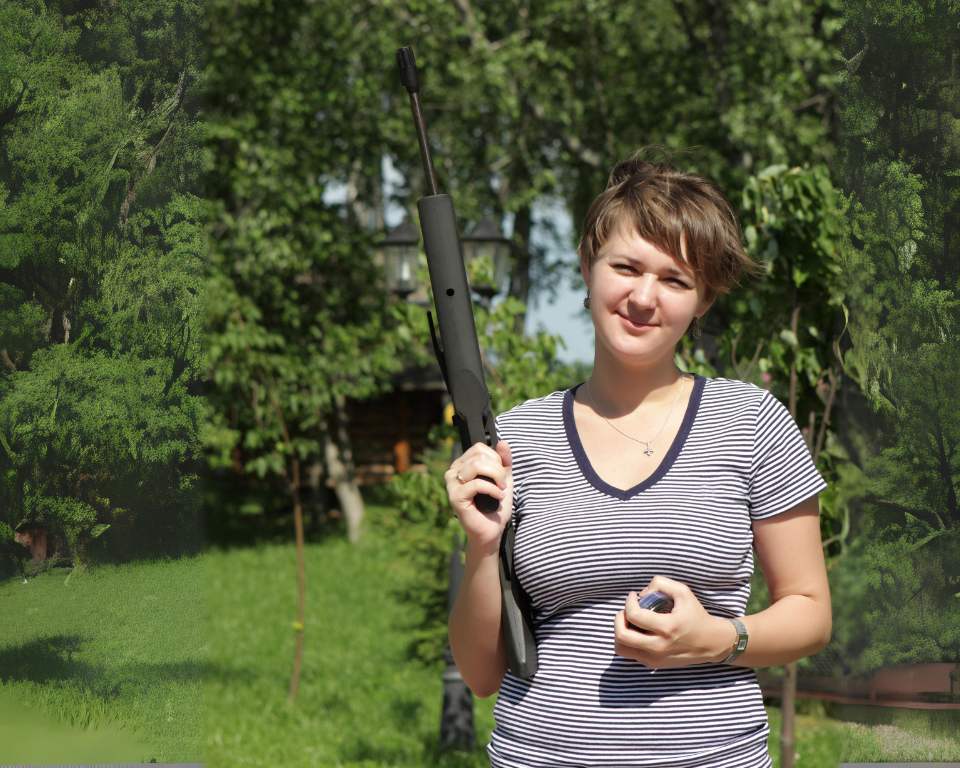
Effectiveness and Risks of Using Airguns for Self-Defense
While airguns can be effective for self-defense in certain situations, it is important to understand both their limitations and the potential risks involved. Airguns may be less effective than traditional firearms in terms of stopping power and range. They require a high level of accuracy and shot placement to effectively neutralize a threat.
When considering self-defense strategies, it is crucial to evaluate the specific capabilities and limitations of airguns. Unlike firearms, airguns rely on compressed air or gas to propel pellets or BBs at high speeds. While they may not have the same stopping power as firearms, they can still cause injury and incapacitate an attacker when used properly.
“I believe airguns can be a suitable self-defense option for individuals who are unable or unwilling to own a traditional firearm. It’s important to remember that self-defense is about neutralizing a threat and ensuring personal safety, and airguns can provide a non-lethal means of accomplishing that.” – John Smith, Self-Defense Expert
In addition to effectiveness, it is essential to consider the legal and safety risks associated with using airguns for self-defense. The laws and regulations surrounding self-defense and the use of airguns can vary, so it is important to understand and adhere to the specific regulations in your area.
“Before using an airgun for self-defense, it’s crucial to familiarize yourself with the laws governing their use in your jurisdiction. Some areas may have restrictions on the type of airgun that can be used, the caliber, or the use of airguns for self-defense in certain locations. To avoid legal complications, always prioritize compliance with applicable laws and seek professional advice if needed.” – Jane Doe, Legal Consultant
Proper training, practice, and understanding of self-defense strategies are fundamental to maximizing the effectiveness of airguns in personal protection. It is important to develop skills in accuracy and shot placement in order to effectively stop a threat while minimizing the risk to oneself. Regular practice and proficiency in self-defense techniques specific to airguns can greatly enhance their usefulness in a defensive situation.
Balancing the Benefits and Drawbacks of Airguns for Self-Defense
When considering the use of airguns for self-defense, it is important to weigh the benefits and drawbacks. Airguns can offer a non-lethal alternative for personal protection, providing a level of deterrence and potentially stopping a threat without causing fatal injuries. They may also be more accessible, affordable, and easier to handle for individuals who are unable or unwilling to own a traditional firearm.
However, airguns have limitations in terms of power, range, and effectiveness compared to firearms. While they can be effective in certain scenarios, they require specialized knowledge, training, and practice to be used effectively in self-defense situations. Achieving the required level of accuracy and shot placement to neutralize a threat can be challenging. It is crucial to carefully evaluate your individual needs, circumstances, and legal requirements before choosing an airgun as a self-defense weapon.
To maximize the effectiveness of airguns for self-defense, it is important to develop effective self-defense strategies that take into account their limitations. This includes understanding the range limitations and the need for close-quarters engagement. It is also crucial to consider the legal implications and know the specific laws and regulations in your jurisdiction regarding the use of airguns for self-defense.
When it comes to self-defense weapon reviews, it is essential to consider reliable sources that provide comprehensive information about various airgun models. Reading reviews from trusted experts and experienced users can help you make an informed decision based on real-world experiences. Keep in mind that self-defense is a serious matter, and choosing the right weapon requires careful consideration. Consulting with professionals, such as self-defense instructors or legal experts, can provide valuable insights and guidance in selecting the most effective self-defense strategies and appropriate self-defense weapons, including airguns.


